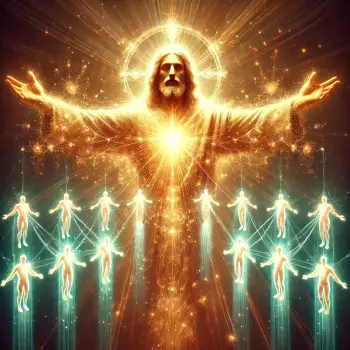And yet, if I may be pardoned for this sin, it is not the devotional poetry that speaks most sensitively about God in this book. It is, as always with Larsen, the family and personal narratives that call one to that pigeon-ghost window. In "Italicized and Fanged, Etc.", the narrator recalls a boyhood incident in which, showing off for friends, he mouths then swallows then chokes on a snake:
you should have seen him spit and spit then chew
grass to kill the taste meanwhile I stare
at the stump end ate eats will eat has eaten is eating
which tense lies the least
a lost Saturday a boy with half a snake
inside him the other half writing in his hand
I am and never will be that boy who fell
into knowing as we all must one ragged breath at a time
One of the most memorable poems in the book, "Suburban Revelation," tells the story of an uncle who, to appease a television-loving aunt after a storm destroys the aerial, "climbed / to the bedroom each night, arms wide, / and played antenna for her."
And still he stood at the window, human rabbit ears,
in torn pajamas, like a framed study
by Edward Hopper. . . .
Trying to taste some scrap of mystery beamed
down from on high before satellites
scrambled it into news his bones knew were lies.
This poem, with its imperfectly embodied human revelator, suggests the conflict inherent in Larsen's treatment of spirituality. His poetic vision is constantly drawn to what he calls "catastrophes of meaning," hungry images with wide-open mouths ready to swallow the message. In traditional devotional poetry, metaphor signifies—it signifies God. But in Larsen's work, "symbols have a way of swallowing the interpreter / the snake diving one inch / then three down the boy's throat before he pulls / on the tail."
Perhaps it is this memory of choking on the symbol that silences the poems right on the verge of spiritual insight. From "Hunger Diaries": "The pigeon does not think, I am missing / four toes. The fingers do not announce, We hold / feathered quickness against the palm. The car tire / does not say, I wish I were driving the Autobahn." In the same way, "Sit-ups with Mr. Johnny Keats" pulls back from the edge of theology: "And she never thought, I am a poem, and I never said, / We thus trade a vale of tears for a vale of soul-making."
Instead, Larsen returns again and again to "catastrophes of meaning," collisions of signification that confound as much knowledge as they confer. This is not the tired cliché about questions being more important than answers, nor is it measured metaphysical paradox. This is a collapsing of dialectics into desiderata.
Scrape the iced windshield with a library card,
doodle love notes on a funeral program.
We improvise and re-purpose, and some afternoons
prove that the best use of Hegel in leather
is to prop open a window.
Children are the virtuosi of catastrophe, and maybe that is why so many of Larsen's poems are populated with children. From "Co-conspirators in Early Autumn":
We could have passed as refugees from a lost
century—in other words, father and child.
Above us a cavernous October sky begging
to be ruined by awe. What is tumbling
water but reverie on fast forward? Bird leaf,
she said, and dropped a feather in my hand.
Bird leaf. Sky animal. World lap. Unsay. These catastrophes are the esoterica of Larsen's Alchemy. There's gold in them hills.





